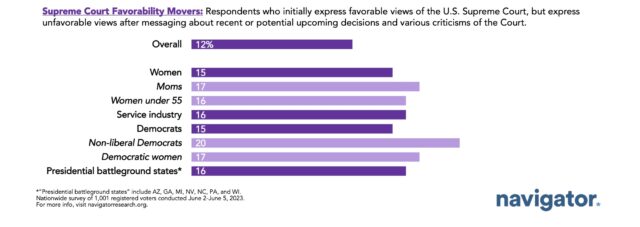- Most Americans are opposed to outcomes of already-decided or upcoming Supreme Court decisions, including allowing businesses to refuse to serve LGBTQ people, limiting the power of the EPA, overturning Roe v. Wade, and expanding gun rights and access; their recent decision against gerrymandering in Alabama avoided a public opinion landmine for now.
- Learning about these recent or potential decisions leads nearly three in five Americans to say they don’t trust the Supreme Court to make the right decisions in the future.
- The most concerning criticisms of the Supreme Court focus on corruption
and ethical code violations, as well as the role “political extremists” on the
Court have played in rolling back crucial freedoms.
Recent or Potential SCOTUS Rulings on EPA Scope, Abortion, Gun Laws, LGBTQ Discrimination Most Opposed
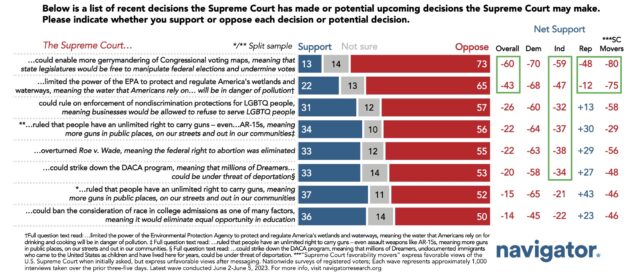
Exposure to Recent and Upcoming SCOTUS Decisions Drives Up Distrust of the Court
Learning about recent decisions the Supreme Court has made or potential decisions it might make drives down net trust in it by 20 points among Democrats,18 points among Black Americans, and 14 points among Hispanic Americans.
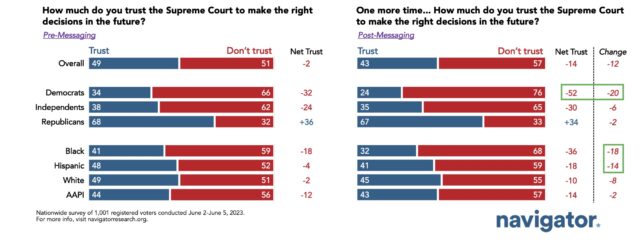
Most Concerning Criticisms of SCOTUS Focus on Corruption and Ethics, Political Extremism, and Rolling Back Freedoms
A message that criticizes “political extremists” on the Court is also more concerning to independents and Supreme Court movers* (66% and 78% concerning, respectively) than one that calls out “MAGA extremists” on the Supreme Court (54% and 66%).
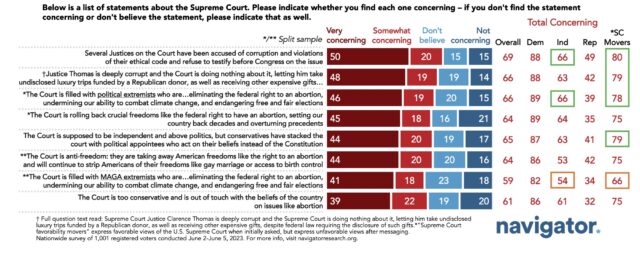
Views of SCOTUS Become Negative By Double-Digits After Exposure to Recent/Potential Upcoming Decisions/Messaging
After messaging about recent or potential decisions by the Supreme Court and various criticisms of it, views of the Court decline by net 17 points overall, driven by declines among Democrats (net -26) and independents (net -19).
- Majorities of Democrats (76% unfavorable) and independents (60%) hold unfavorable views of the Court after messaging, as do nearly one in three Republicans (31%) and majorities of every racial group after learning more.
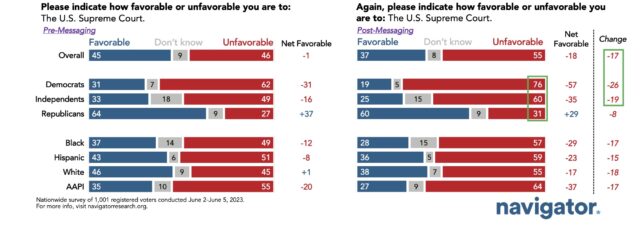
Those Who Shift to View the Supreme Court Unfavorably Tend to Be Women, Democrats, and Live in Presidential Battleground
Democrats who do not identify as liberal (20%) most disproportionately fall into this group, while women (15%) are more likely to fall into this group than men (9%) – this also includes moms (17%) and women under 55 (16%) in particular.
- Americans who live in the seven main presidential battleground states* (16%) are also more likely to fall into this group than those who live in other states.
